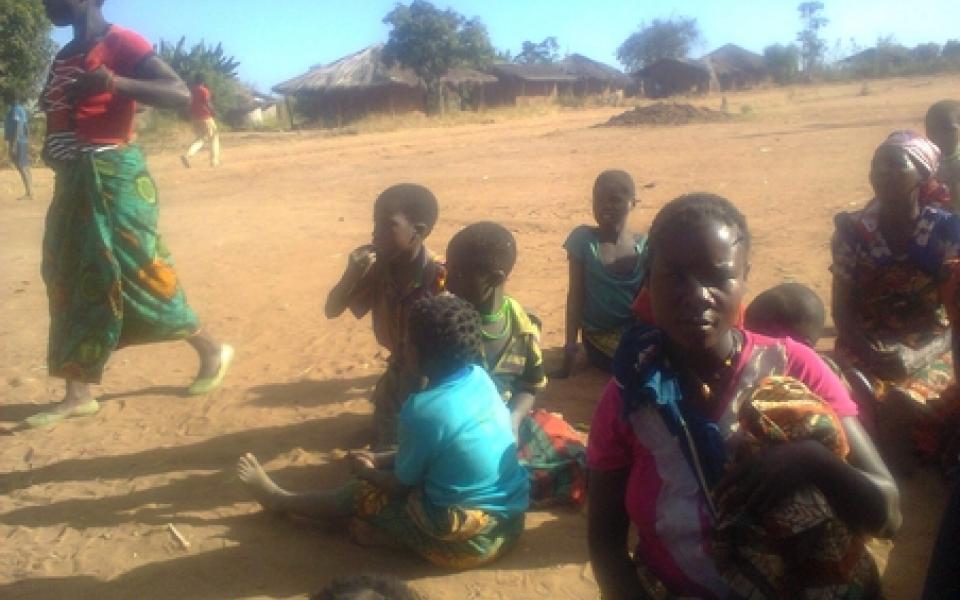
On May 6, 2016, Mrs. Neema Kwagwanji (President for Women’s Group) and Mrs. Raije (Secretary) made a trip to Mbetazigone village 25 kilometers away from the city of Lichinga in the province of Niassa, Mozambique to attend a meeting with women from different faiths and the village headman.
Here, Mrs. Kwagwanji and Mrs. Raije talked to the women about URI and the preamble, purpose and principles of the formation of the women’s group in the village. The women were happy to hear about the group and plans, but expressed reservations in reference to previous groups who had approached them previously and who had given them false hope with promises to help with their projects but ended in nothing.
We invited the village headman to help us with some aspects of the project. The first proposal which was presented to the women was the building of a kitchen, for which the village headman gave us the go-ahead and showed us the place where this kitchen is to be constructed. This kitchen is to help the women cook different types of local foods which can be sold to generate income to meet their day-to-day needs. The village headman assured us that men in the village would contribute towards this project by sourcing materials like grass, poles, bamboos, and thatching, while the molding of bricks will be started soon by both women and men.
Some women in the village have gardens where they grow their food, and we urged them to use the little land they have to produce different food and cash crops. One woman only produces maize and beans on her piece of land, but by using holistic climate-smart agriculture methods, she could plant many other different crops. This is one of the women in the village struggling to look after her family and her old, sick mother. With better advice, training, and support, she could be able to produce enough for food with something left over to sell. As this was a one-day visit, we could not visit all the garden the women wanted us to see, but we look forward to doing so.
Similarly, many women rear local chickens on a small scale for consumption only, but with new methods, we can teach them to raise more so that they can sell the surplus for income. For this, women will need chicken sheds, food, and medication to ensure a good poultry harvest while retaining the natural original taste.
Mrs. Raije is a very good tailor and is very willing to teach the women how to sew, but we would need to provide materials like sewing machines, which could start immediately should the necessary materials be provided by a donor. The women were very eager to learn about this, as they are looking for something which can help them be self-reliant.
Many of the villagers, particularly women, lack basic needs, as the village does not have a health center, school, or good shelter. Some of the girls have children at a very tender age, women sometimes lack clothing, the elderly and the sick lack good care, the children are vulnerable to chronic malnutrition because of imbalanced diets, and many houses are in bad condition.
One of the women who was in the company on this visit Mrs. Raije is a very good tailor who is very much willing to teach our women provided there is availabity of materials like sewing machines. The women were very happy to hear about this. This is what could be looked into as an ugent activity which could start almost immediately depending on the availability of all necessary material should there be a doner to come forward. The women in Mbetazigone are really looking for something which can make them be recognized as self reliant.
The women are really happy and excited with the project vision proposed, but have a few doubts as to how we can make them a reality. As the women and the community are enthusiastic about the work, we are confident that with good planning, we can make holistic climate-smart agriculture possible to address Mbetazigone’s specific needs. We also hope to get some of the women proper training so they can in turn teach others in the community to put things into practice. With Bumblebee CC and Pauline Crosbie’s support, we have been able to plan for and start implementing this project, and this kind of capacity-building and knowledge-sharing will be essential as we progress.
